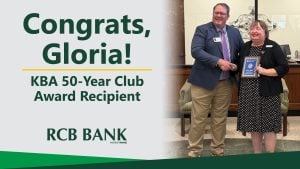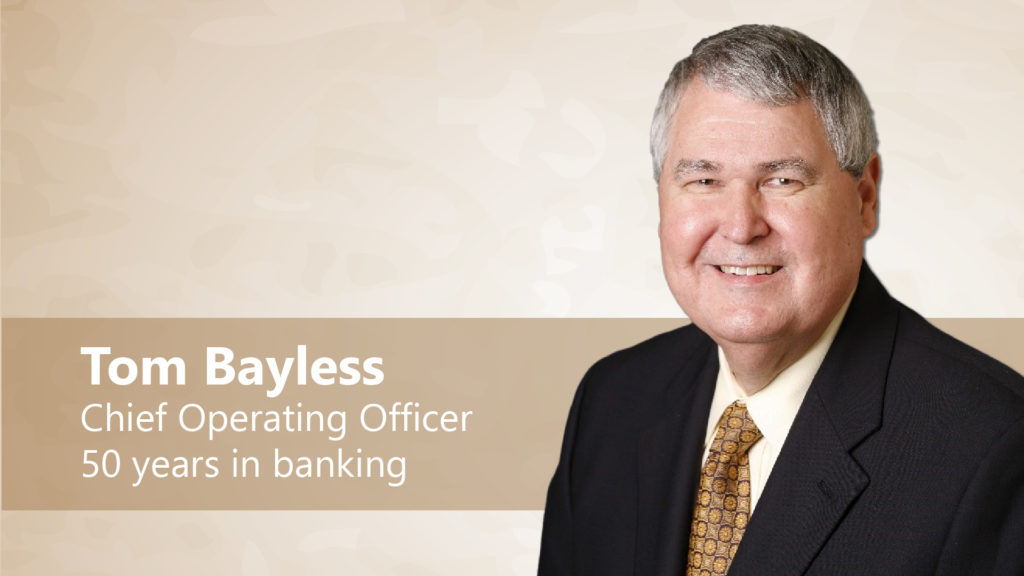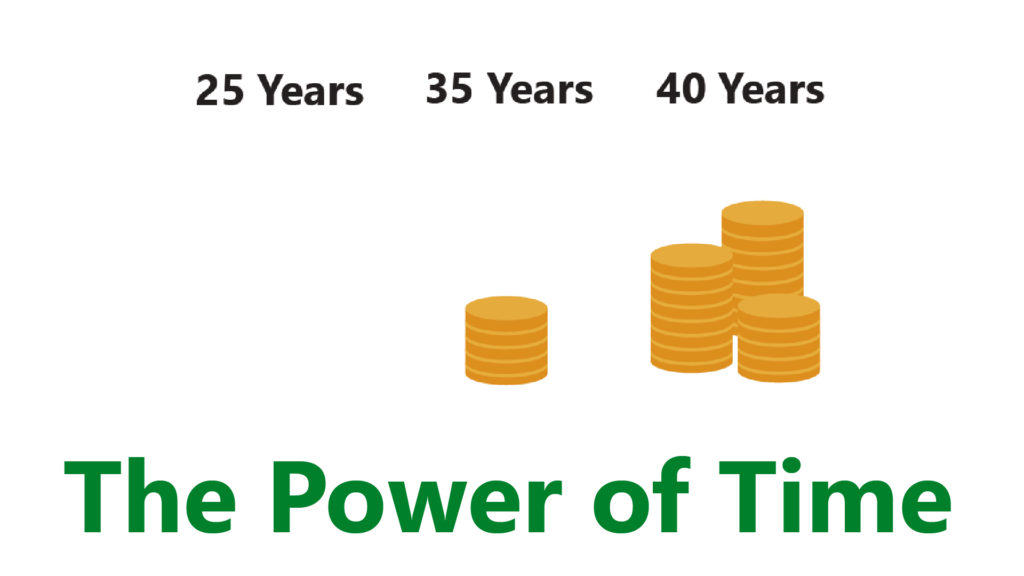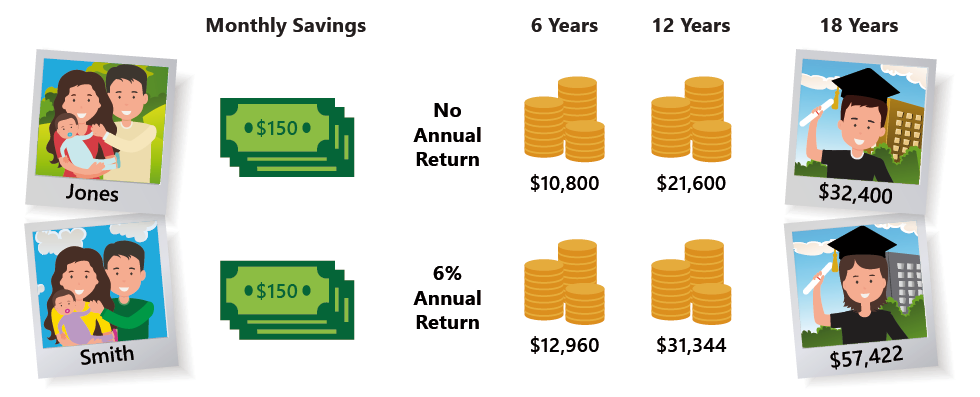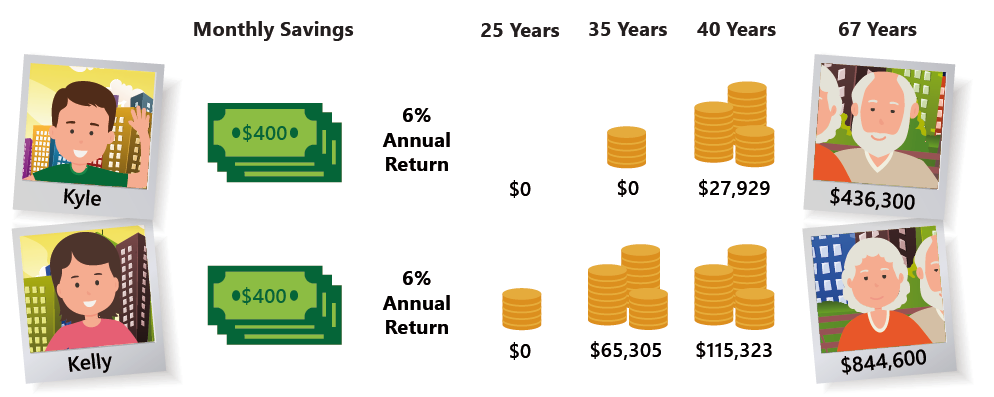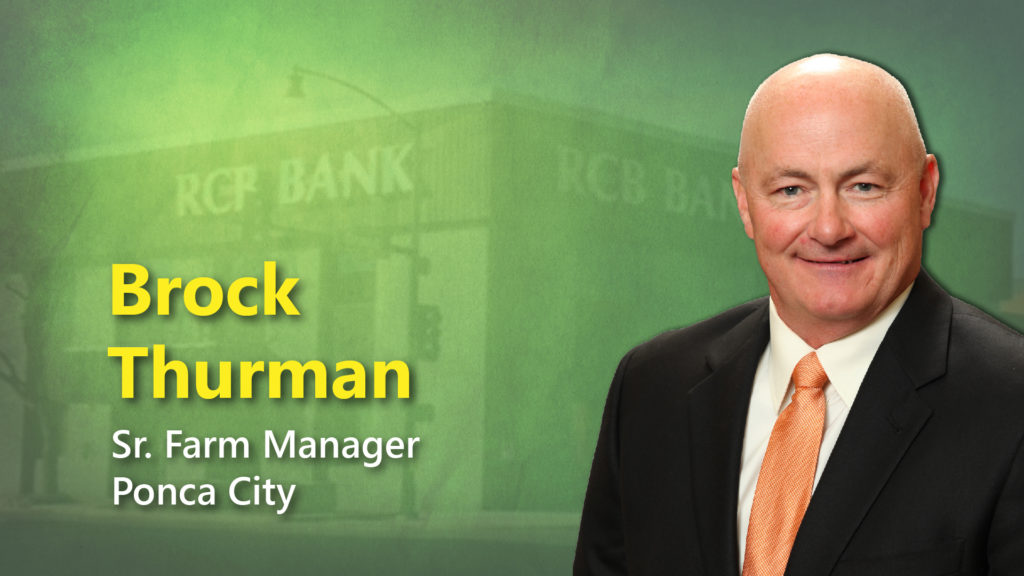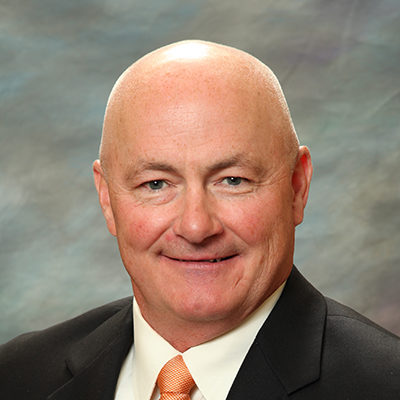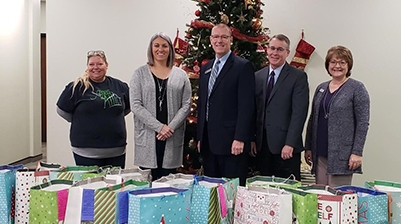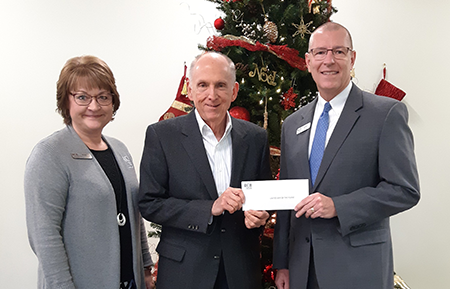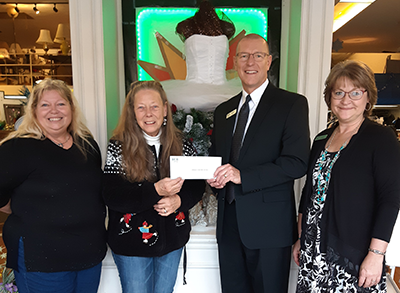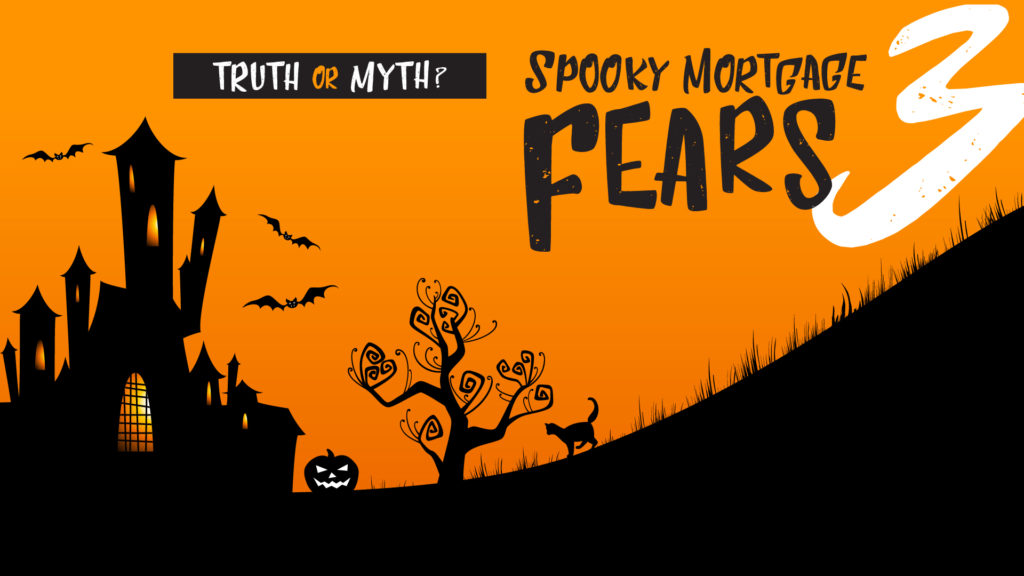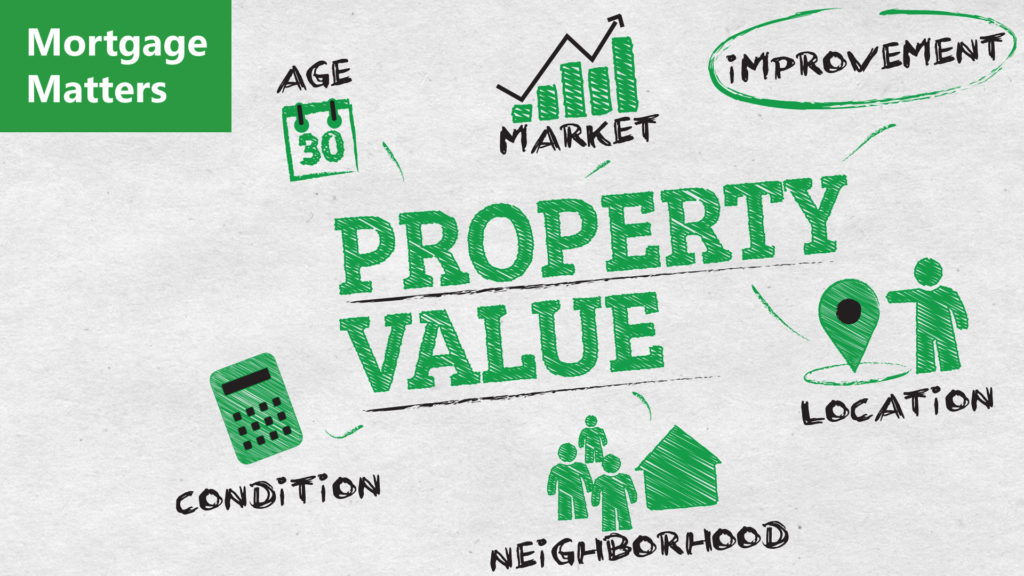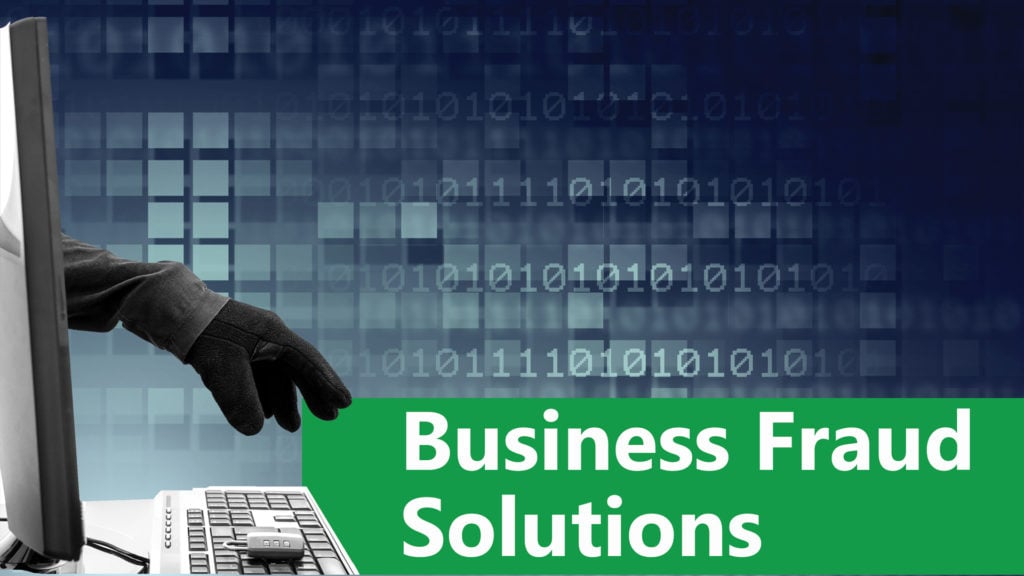
COWLEY COUNTY, KS — Due to Stephens’ great love for education as well as the students of Cowley County, the Florence L. Stephens Trust was established to administer the scholarship fund for local high school students. RCB Bank serves as the trustee and is guided by a board that consists of Peggy Lawrence, Eric Flaton, Kevin Schmidt, Jeremy Trulove and Michala Taylor.
Stephens, born in 1917 in Arkansas City, attended elementary in Ark City. She attended high school in both Ark City and Wichita. She went on to graduate from Southwestern College in Winfield.
Stephens returned to Arkansas City where she served as a school counselor and later as director of guidance for USD 470. She was involved in many organizations, including Delta Kappa Gamma, National Retired Teachers Association, Toastmasters International and Ark City Music Club. She also served as a volunteer chaplain for South Central Kansas Medical Center.
She passed away in Arkansas City on January 17, 2012 at the age of 96.
The 2020 Florence L. Stephens Scholarship Recipients are:
Arkansas City High School
Asher McGuire plans to attend Cowley County Community College to study pre-law. McGuire’s extracurricular activities include: (4) years Forensics, (3) years ACHS Spring Play, (3) years Drama Club, (2) years Arklight Newspaper, (1) year High School musical, (1) year Debate and (1) year Model UN.
Jacey Arnett will attend Wichita State University and plans to major in Medical Laboratory Science. Arnett’s extracurricular activities include: (4) years Tennis, (4) years Band, (4) years Symphonic Choir, (4) years Fellowship of Christian Athletes, (3) years Usherettes, National Honor Society where she served as the president 2018-2020. Arnett obtained several honors in high school that include, Arkansas City Outstanding Student Nominee (2016-2019), 2019 Kansas Honor Scholar, 2018 Shockers Honors Scholar, 2019 Miss Arkansas City and 2019 KTCA Academic All State Girls Tennis. Arnett’s work and community service experience include member of Central Christian Church, Hope Cemetery Memorial Day services volunteer (2006-present), USTA Tennis Day volunteer at WSU tennis center (2019) and employee of The Snowcone Shack (2019).
Noah Leis will be attending Kansas State University and plans to study Mechanical Engineering. Leis’ extracurricular activities include GSA Club where he served as Treasurer, FLBA where he served as President, Animation Club where he served as the Historian, Scholars Bowl member and Model U.N. member. Leis was also involved in several church and community fundraising events throughout his high school career.
Roxana Linares will be attending Kansas State University-Polytechnic where she will study aviation. Linares’ extracurricular activities include; (4) years Upward Bound, (4) years Girls Soccer, (2) years National Honors Society, (2) years SADD, (2) years GSA, and (2) years Animation Club. In addition, she held jobs at Sonic and the Presbyterian Manor. Linares’ also volunteered throughout high school for various community service projects which included Easter Egg hunts, Big Sister, Little Brother and Red Cross blood drive.
Winfield High School
Ashya Chapman will attend the University of Oklahoma in the fall. She then plans to attend OU College of Dentistry. She was recognized a Kansas Honor Scholar. Her extracurricular activities include: FFA, Scholars Bowl, GSA, Art Club and Boy’s Baseball team manager.
Elena Woodburn will be attending Vanderbilt University in Nashville, TN to pursue a degree in engineering. Her extracurricular activities include: (4) years Tennis, (4) years District Honor Choir, (4) years Marching and Symphonic Bank, (4) years Choir, (4) years District Honor Choir, (4) years Drama Club where she served as Vice President, (4) years Student Council where she served as Treasurer, (2) years Link Crew, (2) years State Honor Choir, (2) years National Honor Society where she served as President, and (1) year International Thespian Society. Woodburn also competed in piano and solo competitions at the state level each year. In addition, Woodburn performed in various plays throughout high school and was crowned Winter Homecoming Queen. Woodburn’s community involvement included FUMC High School Youth Group, FUMC Youth Praise Band and Winfield Public Library Summer reading program.
Kenneth Crandall plans to attend Oklahoma Panhandle State University where he plans to pursue a degree in Music Business. His extracurricular activities include: (4) years Basketball where he served as Team Captain, (4) years Choir, (4) years Football where he served as Team Captain, (4) years Vikings on Broadway, (3) years Baseball where he served as Team Captain, (3) years Link Crew, (3) years Viking Voices, and (2) years StuCo. Crandall’s received several honors during high school including: Principal Honors Roll (4) years, Staff Choice Award- 2019, AVCTL All League 2nd Team for Quarterback, Short Stop and 2nd Base, and Kansas Honors Scholar 2019-2020. Crandall’s community involvement included volunteering for WRC events, youth assistant coaching for Football and Baseball, Community and Southwestern plays, working Isle of Lights and participating in CASA fundraiser.
Teryn Jackson will be attending Wichita State University to obtain a bachelor’s degree in psychology. Teryn’s academic achievements include National Honors Society (2) years, Principal Honors Roll (1) year and Staff Choice Award (2018). Extracurricular activities include: Varsity Cheer (2) years, Danceline (2) years, Student Council (4) years where she served as senior class president, junior class vice president and sophomore class representative, Link Crew (3) years, Viking Voices (3) years, Choir Cabinet (4) years serving as president for (1) year, Viking Yearbook Staff (4) years, Art Club (4) years, and Young Democrat Club (3) years where she served a term as president and vice president.
Central High School (of Burden)
Challen Jimenez plans to attend Friends University and study Health Sciences and Nutrition. Jimenez’s extracurricular activities include: Varsity Cross Country (4) years, Varsity Track (3) years, Varsity Football (3) years, Powerlifting (4) years, Varsity Scholars Bowl (4) years, Boxing (4) years and Southwestern Youth Symphony (4) years. His honors and awards include: Honor Roll (4) years, Wendy’s Heisman Award (2019), National Honor Society, Academic All-State Cross Country (2019), Junior Olympic KS Representative in Boxing (2018), and State Powerlifting Champion (3) years.
Dexter High School
Emma Boatman will be attending Cowley County Community College to complete an Associate’s of Science. She then plans to transfer to Emporia State University to obtain a Secondary Education degree in Mathematics. Boatman’s athletic and academic activities include: Volleyball, Basketball, Band, Math team, National Honor’s Society, Student Council, Wichita State Scholar, Kanas Honor’s Scholar, Kansas Governor’s Scholar, SCBL All Academic Team and KWCH 12 Top of the Class. Boatman also served as a teacher aide and was crowned Homecoming Queen.
Udall High School
Isaac Patterson will be attending Wichita State University to obtain a degree in Finance. Patterson’s extracurricular activities include: (4) years Band, (4) years Mathletes, (4) years Football where he served as Team Captain, (4) years Basketball where he served as Team Captain, (4) years FFA where he served in various offices including Chapter Historian, Treasurer and President, South Central District Vice President and Sentinel, (3) years FBLA, (4) years 2020 Class Leadership Team, (3) years Forensics, (3) years NHS where he served as parliamentarian (2) years drama, (2) years FCA, (1) year FCCLA and (1) year CITE Council. Patterson also made numerous achievements within FBLA, FFA, Football and Forensic competitions. In addition, Patterson contributed to many community service events through FFA.
RCB Bank is a community bank with locations across Kansas and Oklahoma. Founded in 1936, RCB Bank is committed to serving its communities with conservative banking practices and progressive banking products. Learn more at RCBbank.com or give us a call at 855.BANK.RCB. Member FDIC, Equal Housing Lender, NMLS #798151.
